SIMPLIFYING RADICALS
Subscribe to our ▶️ YouTube channel 🔴 for the latest videos, updates, and tips.
Thew following steps will be useful to simplify radicals.
Step 1 :
Decompose the number inside the radical sign into prime factors.
Step 2 :
If you have square root (√), you have to take one number out of the square root for every two same numbers multiplied inside the radical.
If you have cube root (3√), we have to take one number out of cube root for every three same numbers multiplied inside the radical.
If you have fourth root (4√), you have to take one number out of fourth root for every four same numbers multiplied inside the radical.
Step 3 :
Simplify.
Examples :
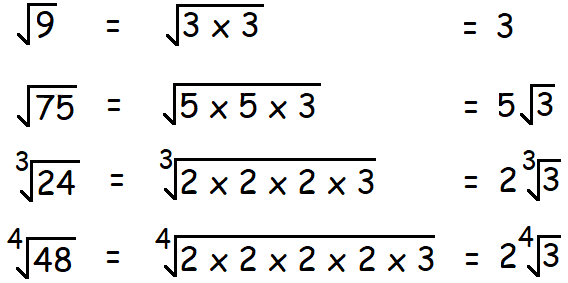
Solved Questions
Question 1 :
Simplify :
√20
Solution :
Decompose 20 into prime factors using synthetic division.

So, we have
√20 = √(2 ⋅ 2 ⋅ 5)
√20 = 2√5
Question 2 :
Simplify :
√121
Solution :
Decompose 121 into prime factors.
√121 = √(11 ⋅ 11)
√121 = 11
Question 3 :
Simplify :
√52
Solution :
Decompose 52 into prime factors using synthetic division.

So, we have
√52 = √(2 ⋅ 2 ⋅ 13)
√52 = 2√13
Question 4 :
Simplify :
√45
Solution :
Decompose 45 into prime factors using synthetic division.

So, we have
√45 = √(5 ⋅ 3 ⋅ 3)
√45 = 3√5
Question 5 :
Simplify :
3√72
Solution :
Decompose 72 into prime factors using synthetic division.
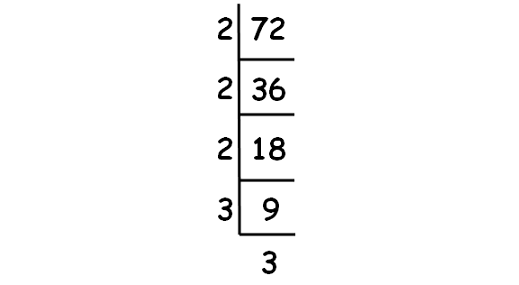
So, we have
3√72 = 3√(2 ⋅ 2 ⋅ 2 ⋅ 3 ⋅ 3)
3√72 = 2 ⋅ 3√(3 ⋅ 3)
3√72 = 2 ⋅ 3√(3 ⋅ 3)
3√72 = 23√9
Question 6 :
Simplify :
3√40
Solution :
Decompose 40 into prime factors using synthetic division.
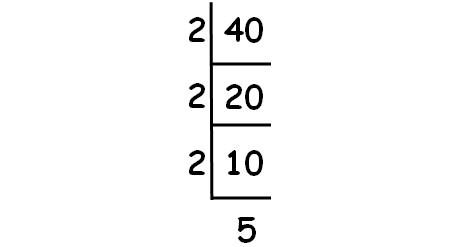
So, we have
3√40 = 3√(2 ⋅ 2 ⋅ 2 ⋅ 5)
3√40 = 23√5
Question 7 :
Simplify :
3√27
Solution :
Decompose 27 into prime factors using synthetic division.

So, we have
3√27 = 3√(3 ⋅ 3 ⋅ 3)
3√27 = 3
Question 8 :
Simplify :
4√243
Solution :
Decompose 243 into prime factors using synthetic division.
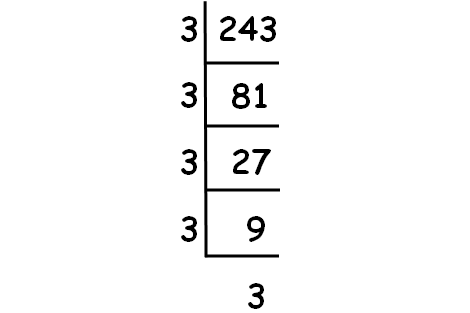
So, we have
4√243 = √(3 ⋅ 3 ⋅ 3 ⋅ 3 ⋅ 3)
4√243 = 34√3
Question 9 :
Simplify :
5√288
Solution :
Decompose 288 into prime factors using synthetic division.
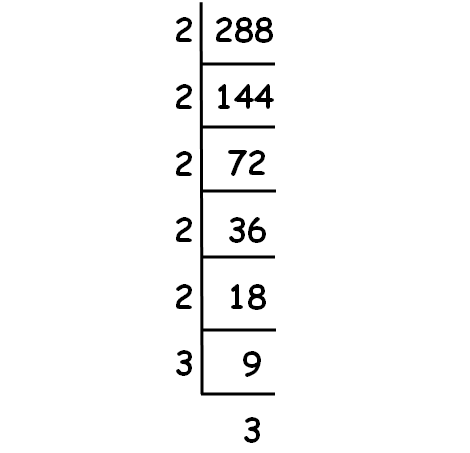
So, we have
5√288 = 5√(2 ⋅ 2 ⋅ 2 ⋅ 2 ⋅ 2 ⋅ 3)
5√288 = 2 5√3
Question 10 :
Simplify :
6√320
Solution :
Decompose 320 into prime factors using synthetic division.
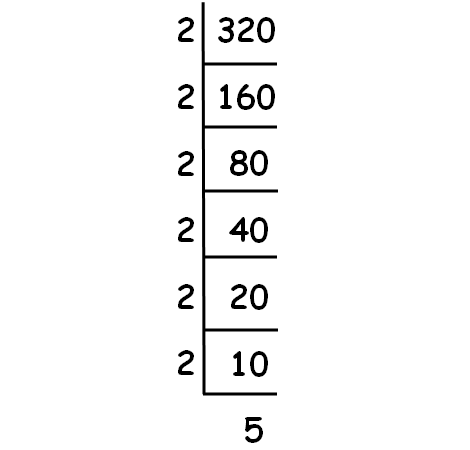
So, we have
6√320 = 6√(2 ⋅ 2 ⋅ 2 ⋅ 2 ⋅ 2 ⋅ 2 ⋅ 5)
6√320 = 26√5
Question 11 :
√12.25 × 18 – (?)² = (6)² + √4
(a) 7 (b) 6 (c) 5 (d) 4 (e) 3
Solution :
√12.25 × 18 – (?)² = (6)² + √4
√(3.5 x 3.5) × 18 – (?)² = (6)² + √(2 x 2)
3.5 x 18 – (?)² = 36 + 2
63 – (?)² = 38
(?)² = 63 - 38
(?)² = 25
? = √25
? = 5
Question 11 :
√625 ÷ √16 × 6 = ?% of 300
(a) 15 (b) 12.5 (c) 17.5 (d) 10 (e) 8.5
Solution :
√625 ÷ √16 × 6 = ?% of 300
√(25 x 25) ÷ √(4 x 4) × 6 = ?% of 300
25 ÷ 4 x 6 = ?% of 300
(25/4) ⋅ 6 = ?% (300)
?% = [(25 ⋅ 6)/4⋅300]
?% = [150/4(300)]
?% = 1/4(2)
?% = 1/8